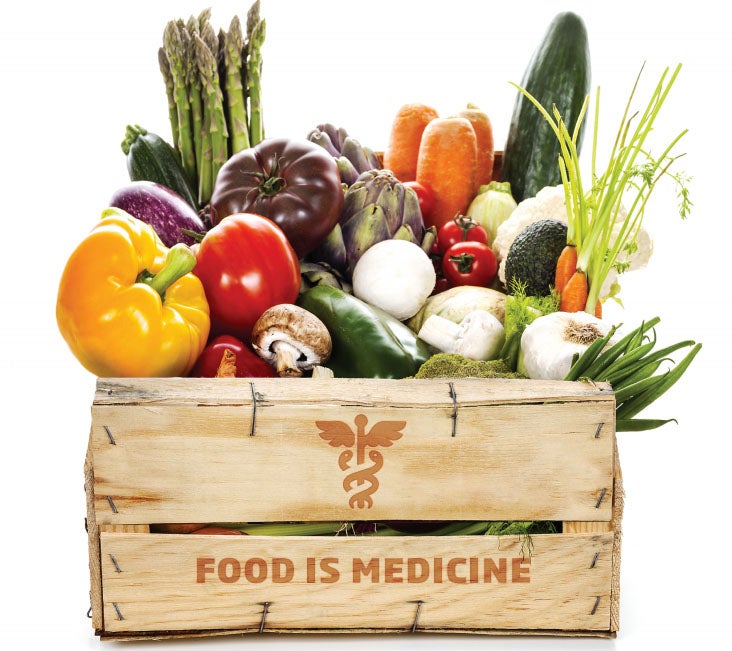Food insecurity and hunger cost the Commonwealth of Massachusetts nearly $1.9 billion in avoidable health care costs every year.
Today, a team of attorneys from the Center for Health Law & Policy Innovation of Harvard Law School (CHLPI) and Community Servings, a nonprofit food and nutrition program, testified at a hearing on proposed legislation to establish a food and health pilot program in the state of Massachusetts.
Harvard Law School Clinical Instructor and CHLPI staff attorney Katie Garfield ’11 and Jean Terranova, Community Servings’ director of food and health policy, testified before the Joint Committee on Public Health at the Massachusetts State House.
The new legislation, titled An Act Relative to Establishing and Implementing a Food and Health Pilot Program, is the first major result of a report CHLPI and Community Servings released last summer—the “Massachusetts Food is Medicine State Plan.” The legislation, introduced by Massachusetts Sen. Julian Cyr (D-Truro) and Rep. Denise Garlick (D-Needham), provides a blueprint to successfully integrate nutrition services into health care delivery and financing in the Commonwealth—a proven strategy to improve health outcomes and reduce health care costs for people experiencing food insecurity and living with chronic illness.
The legislation would require the Executive Office of Health and Human Services (EOHHS) to establish a Food and Health Pilot Program that equips health care systems to connect MassHealth enrollees with diet-related health conditions to one of the three appropriate nutrition services, with the expectation that health outcomes will improve and cost of care will decrease.
“Massachusetts has long been a national leader in health care policy,” said Garfield in testimony before the committee. “However, we continue to struggle with two issues that play a fundamental role in driving health outcomes and health care costs: food insecurity and diet-related disease. … A growing body of evidence indicates that connecting these individuals to “Food is Medicine” interventions may be an effective, low-cost strategy to improve health outcomes, decrease use of expensive health care services, and improve patient quality of life.”
Published in June 2019, the “Massachusetts Food is Medicine State Plan” is a product of a two-year, community-driven initiative that engaged more than 400 people from across the state. The initiative sought to identify health and food system reforms to improve access to critical nutrition interventions and change the culture and practices of the health system.
CHLPI and Community Servings also launched Food is Medicine Massachusetts (FIMMA), a multi-sector coalition comprised of more than 50 organizations representing nutrition programs, patient advocacy groups, health care providers, health insurers, academics, and professional associations.
CHLPI advocates for legal, regulatory, and policy reforms to improve the health of underserved populations with a focus on the needs of low-income people living with chronic illnesses. Community Servings provides medically tailored, nutritious meals to chronically and critically ill individuals and their families.
